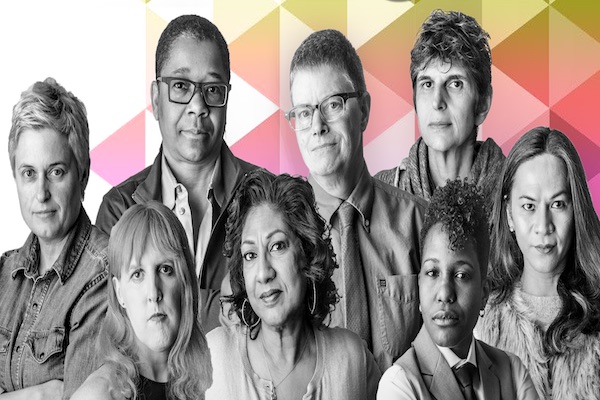Every year Tagg Magazine spotlights women in the D.C. metropolitan area community. This year we are honored to feature eight outstanding community leaders. These individuals have not only made their mark within the D.C. LGBTQ community, but many of them are leaving their footprints for generations to come.
Photography by Denis Largeron
Sheila Alexander-Reid
By Vickey D. Casey
 Sheila Alexander-Reid was social minded, long before she became an activist.
Sheila Alexander-Reid was social minded, long before she became an activist.
Prior to working for Washington D.C.’s Mayor Muriel Bowser, Alexander-Reid was at the forefront of D.C.’s lesbian social scene. After college she realized that there was very little variety for lesbians of color and no safe places to party in Washington, D.C.
Alexander-Reid rented safer spaces and hired security to protect the club goers in the dark alley doorways and from cat-callers, muggings, and fear. Quickly the word spread and she threw parties up and down the East Coast in New York, Philadelphia, Baltimore, Atlanta, and more. She also started a magazine and shared them at the events. It started with printouts of women’s health articles and grew into the Women in Life Magazine.
She did not make the switch to social justice until activist Wanda Alston was killed in 2005. “She was a friend, she was a mentor, and I would say she changed the trajectory of my life,” says Alexander Reid. She says that Alston constantly pushed her to do more because she saw potential that Alexander-Reid did not yet know was there.
Now she is the appointed Director of LGBTQ Affairs under Mayor Bowser. Thanks to Bowser’s progressive values, this office does many things to help the LGBTQ community. Alexander-Reid and her team help homeless LGBTQ youth find housing, help transgender individuals with issues of safety, housing and employment; provide government employees with cultural competency training, and work with the local LGBTQ business community to increase access to opportunity. “It’s amazing to be in a position to create change and to help residents who need it the most,” she says.
Ebony Bates
By Angelo C. Louw
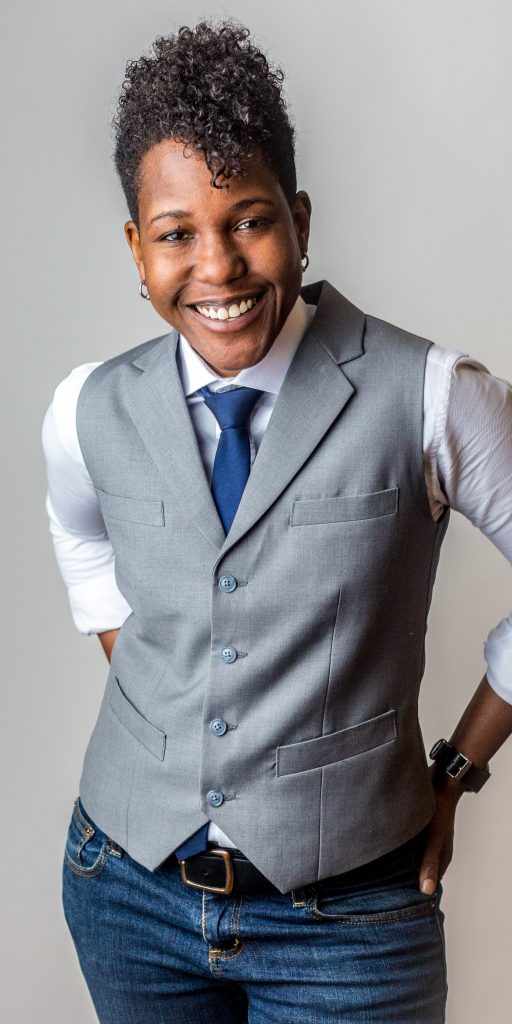 Raised by a real estate agent and landlord, Ebony Bates uses her lifetime of knowledge about the industry to better serve LGBTQ clients at Avery Hess Realtors.
Raised by a real estate agent and landlord, Ebony Bates uses her lifetime of knowledge about the industry to better serve LGBTQ clients at Avery Hess Realtors.
“I respect differences between people and their needs when it comes to finding them a perfect home,” says Bates, who has a Master’s in Political Sciences from Howard. “My focus on this is a direct reflection of how I like to be treated in life and in business.”
Bates mindfully tailors every real estate deal because she knows how it feels to be misunderstood – or even worse, not heard at all. She has experienced her fair share of challenges as a LGBTQ person of color trying to in this industry.
“Like any good negotiator, I do my best to leverage my weaknesses. Since I’m an LGBTQ woman of color, I focus a lot of energy speaking with and marketing to people within one of those (affiliated) circles.”
She adds that working by referral also helps so that when she meets with clients, they already know that she is on their side.
“I started using the tools, the networks, the connection, and the community that I already ,” she says. “Advice to anyone in business and people that appreciate for you.”
Some of the ways she invests in her own community is by hosting Queer Quarterly Mixers, as well as information sessions at various libraries around the city for free.
“I do this because I have an innate need to give back. Each one of us has very specific knowledge about one subject or another so why not share?”
Heather Carlson
By Annie Brown
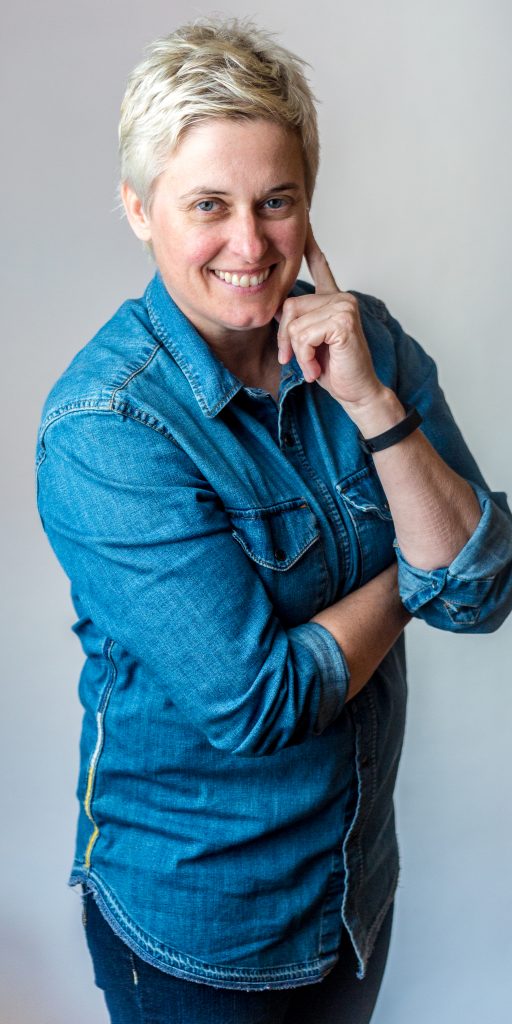 Living and breathing real estate for more than 12 years, Heather Carlson didn’t set out to get into real estate, but after buying and selling her first fixer-upper, it quickly became her niche. A grad student pursuing an MBA and working as a tax preparer and a bartender, Carlson was tired of wasting money on rent and bought the property as “one last entrepreneurial venture before settling into a traditional 9−5 job.”
Living and breathing real estate for more than 12 years, Heather Carlson didn’t set out to get into real estate, but after buying and selling her first fixer-upper, it quickly became her niche. A grad student pursuing an MBA and working as a tax preparer and a bartender, Carlson was tired of wasting money on rent and bought the property as “one last entrepreneurial venture before settling into a traditional 9−5 job.”
With no prior construction knowledge, she bought a pick-up truck and some tools and got to work, tapping into whatever knowledge she could get her hands on and making many, many trips to Home Depot. The Realtor who helped her decide to buy the place convinced her to sell it for a profit. “That’s when I knew I wanted to do this full time,” Carlson says.
Now a Realtor with RE/MAX Allegiance’s Franconia office, Carlson is committed to helping people of all backgrounds make smart financial decisions. She guides sellers in making home improvements that will maximize their returns on investment.
Authenticity is one of Carlson’s core values and keys to success. Prior to joining RE/MAX, she worked for a successful local real estate team that would have preferred her to wear a skirt and heels. Instead, she always came to work as herself, wearing khakis and polo shirts and using her brain. “People liked it,” she says. “I ended up being the top agent on the team all five years I was with them—no skirt required.”
In addition to helping people buy and sell homes, Carlson flips houses and self-manages more than ten rental homes, while staying active in the LGBTQ community.
Candace Gingrich
By Vickey D. Casey
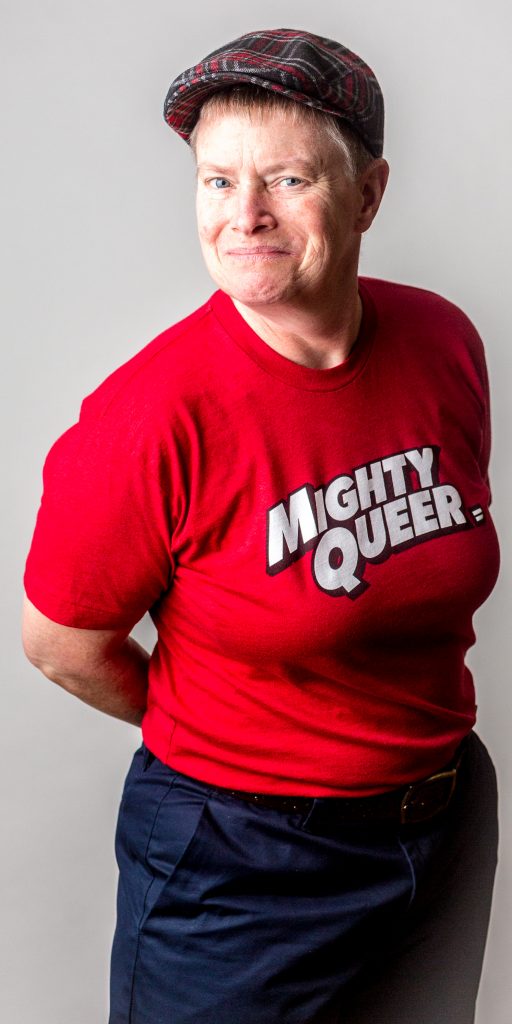 After Candace Gingrich’s half-brother became Speaker of the House, they knew that staying silent while he publicly supported harmful LGBTQ policies was impossible.
After Candace Gingrich’s half-brother became Speaker of the House, they knew that staying silent while he publicly supported harmful LGBTQ policies was impossible.
After the election, they heard more and more stories of people facing discrimination and violence. “When an issue goes from being an issue to a person it changes you,” says Gingrich. “Once I started getting that kind of understanding and education, I personally didn’t see any way to not do something about it. Whatever that might happen to be.”
Now Gingrich works with the Human Rights Campaign as Associate Director of the Youth and Campus Engagement Program and as the HRC University Internship coordinator. Here students can receive training, attend seminars, and receive mentorship to continue growing as LGBTQA conscious leaders. “They give me hope for the work that’s ahead,” says Gingrich.
They travel across the country for LGBTQ conferences and attend and assist with trainings at universities. Some are focused on housing and student life where staff can learn more about the lives and needs of their LGBTQ students; specifically those who identify as queer, gender non-binary, or transgender. “While obviously we’re still not there with legislation and protection, or even complete cultural competence with LGBT issues,” says Gingrich, “there’s still a lot of catching up that needs to be done as far as trans, queer, and non-binary folks go.”
When Gingrich is not doing all of these things they are encouraging people to keep conversations about LGBTQ issues going. Their passion is helping others recognize their power to affect change, especially during this administration. “Every time we have a chance to share our story or put a face to what queer life is like that moves it forward,” says Gingrich.
Jamie Leeds
By Annie Brown
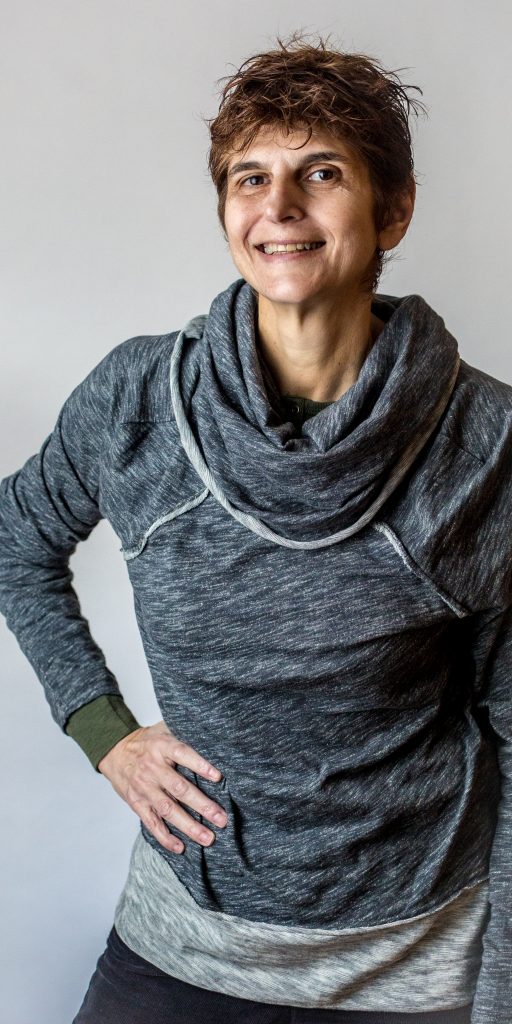 For Chef Jamie Leeds, owner of JL Restaurant Group, seafood has been a lifelong love. “My father, Hank, was a big influence on me as a child,” she says. “He used to take me out to great restaurants and cook his favorite seafood dishes for me.” In her 20s, she took a job at a small New York City restaurant and found the energy of the kitchen invigorating from the start. Even though there weren’t many female chef role models in the early ‘80s, she knew she had to give her culinary career a shot.
For Chef Jamie Leeds, owner of JL Restaurant Group, seafood has been a lifelong love. “My father, Hank, was a big influence on me as a child,” she says. “He used to take me out to great restaurants and cook his favorite seafood dishes for me.” In her 20s, she took a job at a small New York City restaurant and found the energy of the kitchen invigorating from the start. Even though there weren’t many female chef role models in the early ‘80s, she knew she had to give her culinary career a shot.
Leeds opened Hank’s Oyster Bar, her first restaurant, in Dupont Circle 2005, three years after moving to D.C. Her approachable coastal fare with an urban twist quickly made Hank’s a popular neighborhood destination.
After opening and operating two additional Hank’s Oyster Bar locations, Leeds recognized the power of her Hank’s brand. Inspired by the dedication and ambition of her staff, she opened two new restaurants in 2016: Hank’s Pasta Bar in Alexandria and Hank’s Cocktail Bar (originally The Twisted Horn) in Petworth.
And she’s not stopping there: Leeds and her team are finalizing design plans for Hank’s on the Wharf, a new restaurant slated to open in August off of Maine Avenue, across from the main pier at District Wharf.
Leeds is committed to demonstrating her support for social causes. Now through April 30, JL Restaurant Group will donate 1 percent of all sales or $20,000—whichever is greater—to benefit the ACLU, NAACP, the Human Rights Campaign, and Planned Parenthood.
When she’s not in the kitchen, Leeds enjoys spending time with her wife, Tina, and their new daughter, Hazel Grace.
Particia Nalls
By Angelo C. Louw
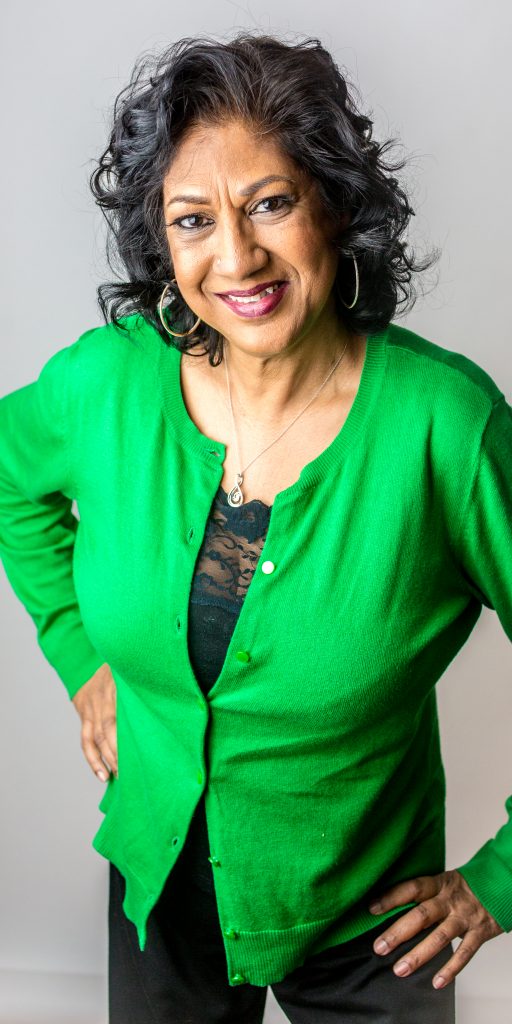 In 1987, Patricia Nalls lost her husband and three-year-old daughter to AIDS within six months of each other. The stigma and lack of knowledge surrounding HIV and AIDS forced Nalls, who was also HIV-positive, to cope with the loss alone.
In 1987, Patricia Nalls lost her husband and three-year-old daughter to AIDS within six months of each other. The stigma and lack of knowledge surrounding HIV and AIDS forced Nalls, who was also HIV-positive, to cope with the loss alone.
By 1990, the lack of support specifically for women with AIDS compelled Nalls to reach out to others in her shoes and distribute a flyer at her doctor’s office seeking women living with HIV to talk to.
“I was hoping to at least have one other person to speak with. At the time, I thought I was the only woman diagnosed with AIDS,” Nalls says. “Much to my surprise, the phone began to ring quite a bit. None of us wanted to show our faces, so we decided to just talk via telephone to ensure anonymity and confidentiality.”
Within two years, the phone line evolved into a support group—“the Coffee House”—held in Nalls’s home. In 1995, Nalls incorporated the group as a nonprofit called The Women’s Collective.
While there have been great improvements in HIV knowledge and treatments since then, there are still many challenges, particularly for women.
“Most primary care physicians (PCPs) are still clueless about the disease. This is problematic, since most women now have health insurance and it’s required that you have a PCP,” Nalls says.
The problems don’t stop there. For those with health insurance, copayments and deductibles are not affordable, which means making a choice between filling a prescription and putting food on the table, Nalls explains. Meanwhile, not everyone has health insurance, especially undocumented immigrants. Additionally, some women who disclose their status to sexual partners experience violence or are even murdered.
Through care management, prevention services, and advocacy work, The Women’s Collective strives to counter these issues and be vocal about the need for inclusive policies on sexual and reproductive health, gender-based violence, housing, and poverty.
Bianca Humady Rey
By Eboné F. Bell
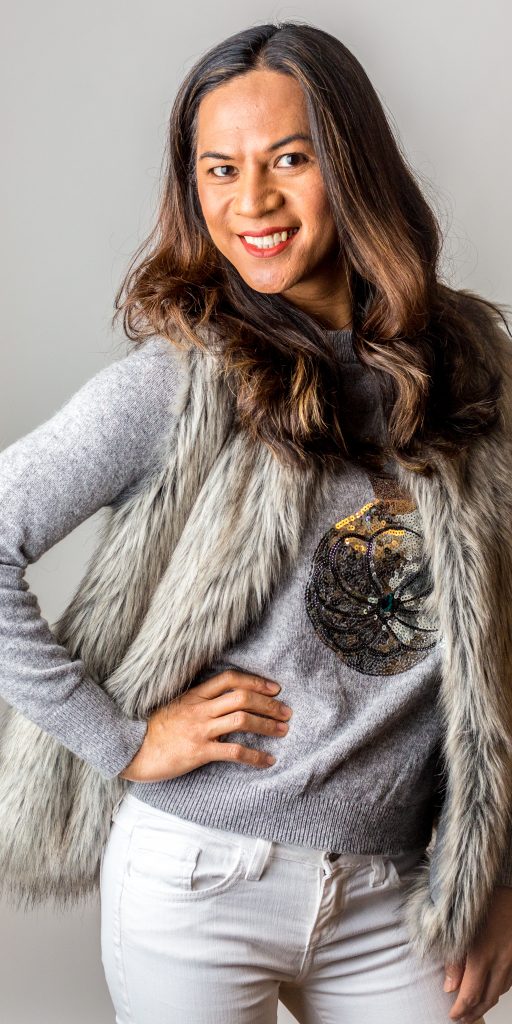 Behind every great event is a great woman. That’s certainly the case with Capital Trans Pride Executive Producer Bianca Humady Rey.
Behind every great event is a great woman. That’s certainly the case with Capital Trans Pride Executive Producer Bianca Humady Rey.
Rey was born and raised in the Philippines before moving to the U.S. in 1998. Now 38 years old, she’s lived in northern Virginia ever since.
“When I moved to the United States, I realized that I identified with the LGBTQ community. I knew I was transgender,” explains Rey. “I wanted to be a part of it and do something within the trans community.”
That opportunity opened up thanks to her Project Coordinator position at Kaiser Permanente. As a well-known sponsor and supporter of Capital Pride, the company introduced Rey to the D.C. area’s LGBTQ community. In 2014 she became a Capital Trans Pride volunteer through Kaiser Permanente.
“I really liked what I was doing representing Kaiser Permanente at Capital Trans Pride and Capital Pride, but personally, I wanted to do more,” Rey explains.
After this first experience in 2014, she leveraged her passion for the event by taking on the role of planning and managing the next Capital Trans Pride celebration. In her first year as Executive Producer, the attendance number doubled, and it continues to grow each year.
In addition to taking on the Executive Producer role for Capital Trans Pride, she has also become an advocate for Equality Virginia’s Transgender Advocacy Speakers’ Bureau. Rey and her fellow advocates connect with faith communities across Virginia in an effort to build a better understanding of transgender life experiences.
Ultimately, Rey has proven to be a champion for the transgender community.
“The transgender community is where I really found a space for me to be more open and help give back,” says Rey.
Jessica Whittingon
Eboné F. Bell
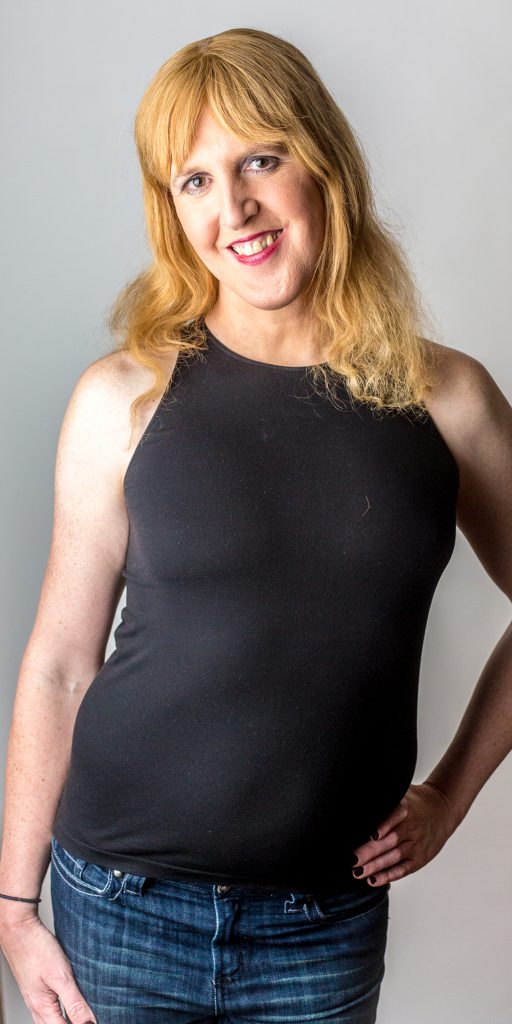 LGBTQ visibility is important to Jessica Whittington. The local fitness guru has become a popular figure in the Stonewall Yoga community, an organization that provides inclusive and fun yoga experience for the LGBTQ community and allies.
LGBTQ visibility is important to Jessica Whittington. The local fitness guru has become a popular figure in the Stonewall Yoga community, an organization that provides inclusive and fun yoga experience for the LGBTQ community and allies.
With a background in martial arts and 14 years of yoga experience, Whittington has taken her talent across the D.C. metropolitan area from Yoga District to Sport Fitness to Stafford House of Yoga.
Before making her mark on the D.C. fitness community, Whittington lived in Atlanta, Georgia where she found her truth as a transgender woman.
Not shy about her identity, Whittington now teaches over 400 students per week. “[The] majority of the time, I’m the only out transgender person in the room, and I just so happen to be the teacher,” she says.
Whittington is specifically committed to working with marginalized communities where she creates a mental and emotional safe space.
“I understand how it feels to step into an environment where you feel like you don’t belong or you feel awkward,” she explains. “I have a special empathy for people who have had this experience. It is a priority for me that everyone feels safe.”
In addition to her full-time yoga commitment, she leads workshops for other instructors on “how to assist trans bodies, how to be inclusive, and how to show common decency.”
Whittington shows no signs of stopping. She is currently building her brand for her yoga company. And, as a committee member of Stonewall Yoga, she is committed to seeing the organization expand across the country.
“I like using yoga as a form of activism because it’s self-care for the community, and it’s a way that I can give back,” says Whittington. “I’m honored that my work can be my activism.”


